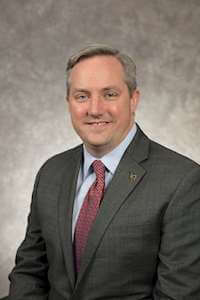Chicago companies fear unknown in net neutrality repeal
Published: December 15, 2017 / Author: Chicago Tribune
Federal regulators’ decision to end net neutrality and roll back regulations that some say kept data flowing freely on the internet has left some Chicago business owners concerned for their companies’ futures.
While it’s still unclear exactly what the repeal of the Obama-era rules will mean, proponents of net neutrality fear internet service providers will set up toll lanes on the internet, charging some sites to deliver content faster. That could inhibit growth at tech companies, some in the industry say.
“The bigger companies, my competitors for instance, will have a pile of cash to say, ‘Yeah, no problem, we’ll pay,’” said Stu Grubbs, co-founder of Chicago-based Lightstream. The 14-employee startup builds production software for live streaming. “By the time I do have the money to get past that block, they’ll have … beaten me out.
“It stifles innovation. It stifles growth to be able to move to new markets,” he said.
Adam Selsby, founder of Chicago-based online buying platform Treatail, said startups would be forced to make a choice: Put resources into making their product better for consumers or focus on back-end changes that would reduce their bandwidth, which could get more expensive.
There’s so much labor that goes into developing code and technology, Selsby said. Getting the products to consumers is supposed to be the part that’s inexpensive. Lifting net neutrality could change that.
“It’s not easy to be a startup and have one of your table legs potentially shaky,” he said.
Thursday’s 3-2 party line vote by the Federal Communications Commission gets rid of the rules put in place in 2015 by Democrats that tried to keep data flowing freely online.
Those rules provided utility-like oversight of the internet, and that’s exactly how the internet should be regulated, said Mike Chapple, associate teaching professor at the University of Notre Dame’s Mendoza College of Business.
Broadband internet access is a monopoly in many areas of the country, he said in an email. That is not a free market and should be regulated like other utilities.
“The electric company doesn’t tell us how we may use power, the telephone company doesn’t limit the phone numbers that we may call, and service providers shouldn’t restrict our access to the internet,” he said.
Read the entire story on the Chicago Tribune website.
Related Stories





